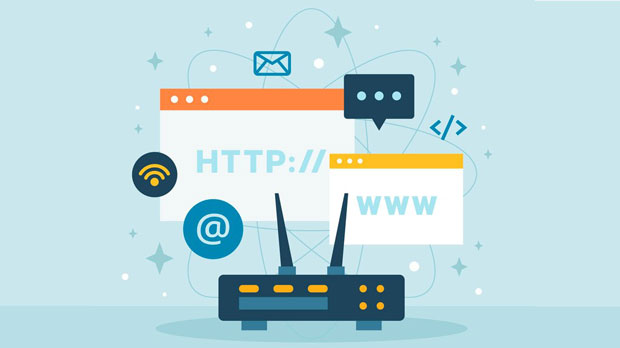Black Friday, a day known for massive discounts across a variety of products and services, often sparks intense interest in tech-related deals, particularly in the world of proxies. For those looking to enhance their online security and access restricted content, static ISP web proxies are a valuable tool. One common question that arises during this time is whether there are any exclusive offers or PYPROXY coupons available for such services during Black Friday sales. Static ISP web proxies are essential for those seeking a reliable, uninterrupted connection to the internet, and any potential discounts on these services can make them even more accessible. In this article, we will explore the relationship between Black Friday sales and PyProxy coupon availability for static ISP web proxies, providing an in-depth analysis of the promotional opportunities that might be available. What Are Static ISP Web Proxies?Static ISP web proxies are a specialized form of proxy server designed to route internet traffic through an Internet Service Provider (ISP), providing a stable and reliable connection. Unlike dynamic proxies, which frequently change their IP addresses, static proxies maintain a fixed IP address. This consistency is particularly valuable for businesses or individuals who require a stable connection for tasks such as web scraping, SEO, or accessing geo-blocked content. By using a static ISP web proxy, users can mimic a regular internet user from a specific region or location, which is ideal for tasks that require a consistent IP footprint over time.Why Static ISP Web Proxies Matter in the Digital AgeThe increasing demand for privacy, security, and seamless internet access has made static ISP web proxies an essential tool. With the rise of online restrictions, such as geo-blocking or IP-based bans, users are constantly looking for ways to bypass these limitations. static ISP proxies offer several advantages in this area:1. Consistency: Since static proxies do not change their IP addresses, users are less likely to encounter issues with access restrictions.2. Reliability: Static proxies are ideal for long-term tasks, ensuring a stable connection that doesn’t experience the disconnects often associated with dynamic proxies.3. Improved Security: By masking a user’s real IP address, static proxies help protect against cyber threats and increase online privacy.In short, the reliability and consistency offered by static ISP proxies are critical for various online activities, particularly for businesses or individuals relying on continuous, uninterrupted access.Black Friday and Technology PromotionsBlack Friday has long been a prime time for retailers to offer massive discounts on a wide range of products, and tech companies are no exception. Whether it’s gadgets, software, or internet services, Black Friday offers a unique opportunity to get high-quality items at a reduced price. The tech world, particularly, sees a surge in interest, as consumers are constantly looking for tools to improve their online experience. In this environment, web proxy services, such as those provided by PyProxy, are often included in promotional deals.Do PyProxy Coupons Exist During Black Friday?For those specifically searching for discounts or coupons for PyProxy services, it is important to understand that while Black Friday deals typically include a variety of tech-related products, the availability of specific discounts like PyProxy coupons is not always guaranteed. However, there are often several reasons why such discounts might appear:1. High Demand: Black Friday is all about attracting consumers with irresistible offers, and web proxy services are in demand due to their role in enhancing security and bypassing internet restrictions. This makes it likely for services like PyProxy to offer discounts or promotions during the event.2. Exclusive Deals for Subscribers: Many services, including PyProxy, offer special deals for their newsletter subscribers or loyal customers. These deals can coincide with Black Friday sales, offering exclusive coupons or discounts on subscription plans.3. Bundled Offers: During Black Friday, it’s common to see bundled deals where purchasing one service or product provides additional benefits, such as discounted proxies or free additional months for existing subscribers.In previous years, some proxy providers have rolled out limited-time Black Friday offers, which could include discounts on subscriptions, longer trial periods, or exclusive coupon codes. It’s essential to monitor such deals carefully to capitalize on potential savings.How to Find PyProxy Coupons for Black FridayFinding the best PyProxy coupons during Black Friday requires a strategic approach. Here are some tips to ensure you don’t miss out on potential discounts:1. Subscribe to Newsletters: Often, the best deals are sent directly to customers who subscribe to newsletters. Signing up for newsletters from PyProxy can provide early access to Black Friday offers and potentially exclusive discount codes.2. Follow Social Media: Keep an eye on PyProxy’s social media pages. Many companies post time-sensitive deals and promotions, especially during high-traffic events like Black Friday.3. Check Deal Aggregator Websites: There are websites dedicated to tracking and compiling deals across various categories. These sites can provide a list of active Black Friday promotions, including those related to web proxies.4. Sign Up for Alerts: Some websites and services allow users to set up deal alerts. By setting up a notification for Black Friday deals on proxy services, you can ensure you don’t miss any offers that become available.Are Black Friday Discounts on Static ISP Web Proxies Worth It?When it comes to making a purchase during Black Friday, it's important to determine if the discounts on static ISP web proxies, such as those potentially offered by PyProxy, are truly worth the investment. Here are some factors to consider:1. Discount Size: While Black Friday often provides significant discounts, you should evaluate whether the discount is large enough to justify making a purchase. Some providers might offer 10% off, while others may offer up to 50% off for a limited time.2. Long-Term Value: If you plan on using static ISP proxies for a long period, consider how much the discount will save you over time. A great Black Friday deal could lead to long-term savings, especially if you’re looking at an annual subscription.3. Limited-Time Offers: Black Friday deals are typically time-sensitive. This means if you don’t act quickly, you might miss out. Weigh the urgency of securing the deal against your immediate need for the service.Conclusion: Are PyProxy Coupons Available During Black Friday? In conclusion, while there is no guaranteed PyProxy coupon for static ISP web proxies during Black Friday, the likelihood of finding valuable discounts is high. Many companies offer promotions during this time, and by being proactive—subscribing to newsletters, following social media, and checking deal aggregator websites—customers can potentially score significant discounts on PyProxy services. Static ISP proxies remain an essential tool for many users, and Black Friday can be an excellent opportunity to purchase these services at a lower cost. As with any promotion, it’s crucial to assess the value of the deal and consider both short-term savings and long-term utility before making a purchase.
May 20, 2025






















































